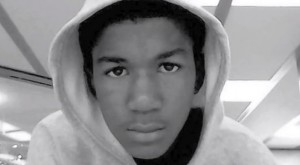 There is a price to invoking race too frequently. It goes something like this: allege bias and racial motivations often enough, and the case gets old. Then, when the time comes when there is a genuinely ugly racial moment, and the claim needs to be made, it seems more shopworn than moving.
There is a price to invoking race too frequently. It goes something like this: allege bias and racial motivations often enough, and the case gets old. Then, when the time comes when there is a genuinely ugly racial moment, and the claim needs to be made, it seems more shopworn than moving.
I have seen this equation play out countless times in Alabama, and I thought of it as the outcry builds over the shooting of an unarmed black child in Florida named Trayvon Martin. The details remain vague but there is at least an outline of what occurred. A neighborhood resident notices a black teenager who seems out of place to him; without reason or provocation, and contrary to the instructions of the police dispatcher he called, the man apparently follows the teenager. At some point, the two encounter each other and the episode ends horrifically. A 17 year old with no history of violence, and nothing in his past to suggest he would resort to violence, is shot dead. The shooter was allowed to leave without being arrested and without even being subjected to an alcohol or drug test.
 The shooter had a bloody nose and it suggests that his meeting with Martin turned into an altercation. But the case seems an almost perfect storm of bad, flawed intentions: one man’s suspicions of a kid who looked neither menacing nor suspicious; a police department’s insensitive decision to let the shooter walk away from the scene of a death; the local prosecutor’s failure to see probable cause to convene a grand jury; and a state deadly force law that might have been written for the jungle and not the confines of a community. It is morally clear enough that, yes, the Justice Department ought to be preparing an assault on the law as well as an investigation of the shooting.
The shooter had a bloody nose and it suggests that his meeting with Martin turned into an altercation. But the case seems an almost perfect storm of bad, flawed intentions: one man’s suspicions of a kid who looked neither menacing nor suspicious; a police department’s insensitive decision to let the shooter walk away from the scene of a death; the local prosecutor’s failure to see probable cause to convene a grand jury; and a state deadly force law that might have been written for the jungle and not the confines of a community. It is morally clear enough that, yes, the Justice Department ought to be preparing an assault on the law as well as an investigation of the shooting.
To all manner of people, Trayvon Martin’s death is actually what real injustice looks like. Not the contrived “injustice” Democratic operatives invoke when they equate a voter ID requirement with a billy club, or when the Department of Justice compares an ID with brutal sixties style suppression. Not the exaggerated “injustice” claimed by the Congressional Black Caucus when it blames the ethics investigations of so many of its members on a racist conspiracy, as if a bipartisan Ethics Committee had any plausible interest in doing such a thing. Not the over-heated, dramatized “injustice” ascribed to the execution of Troy Davis, a man whom nine witnesses said was a cop-killer and whose conviction survived each level of review from judges of every partisan and ideological stripe.
If only the race card weren’t played so promiscuously, more Americans might hear this child’s death as the inexcusable event it seems to be. If the zone weren’t already filled with cries of racism, the shooting might be a teachable moment about the ways prejudice shapes fear, and the ways that fear can distort lives, and the foolishness of laws which license that same fear to kill.
The unspeakable tragedy would be if the facts bear out that Trayvon lost his life because he was pressed into the shape of a stereotype. The next tragedy would be if that life was lost in vain because the grievance over Trayvon sounded like just another cry of race from a familiar chorus line.
(Cross-posted, with permission of the author, from OfficialArturDavis.com)









Leave a Reply